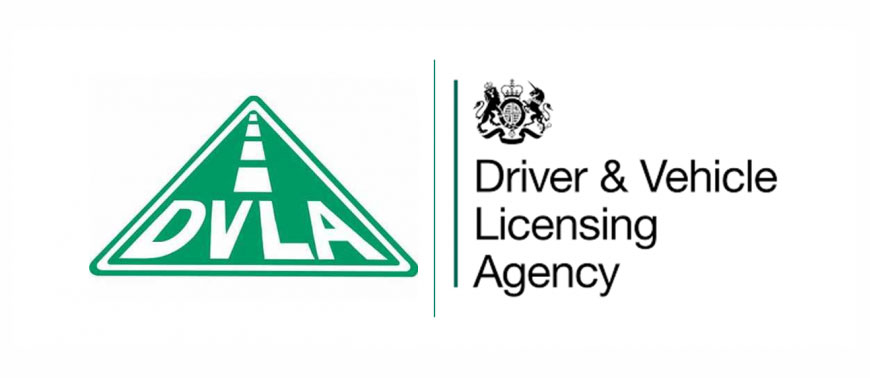
Published: 2024-03-04 by, News Team in the Traffic & Travel news category
DVLA Mandates Health Condition Disclosure: Risk £1,000 Fine
Failure to disclose certain health conditions to the DVLA could result in a hefty £1,000 fine for drivers. The DVLA mandates disclosure of 108 medical conditions that "might affect your ability to drive safely." This legal obligation applies to all drivers, underscoring the importance of compliance.
Moreover, drivers risk insurance coverage denial in case of accidents where health conditions may have been a contributing factor. Experts at Swansway Motor Group emphasize that disclosing health conditions to the DVLA promotes safer driving practices. The Mirror highlights a comprehensive list of reportable conditions, including cancer, diabetes, and neurological disorders.
Uncertain about whether to report a condition? Swansway Motor Group advises consulting a healthcare professional for clarity. Their counsel emphasizes the prudence of adhering to DVLA regulations to mitigate potential legal and financial consequences.
Upon disclosure, the DVLA may evaluate drivers' fitness to drive through various means, such as consulting with GPs or consultants, arranging local medical examinations, or conducting driving assessments and eyesight tests.
Importantly, having a medical condition does not automatically warrant license revocation. If the condition does not compromise safe driving, drivers can typically retain their licenses. Modifications to vehicles or driving habits may suffice. The DVLA may issue shorter licenses, subject to review every one to three years, to ensure ongoing compliance and safety.
The full list of 108 medical conditions include:
Agoraphobia, Alcohol problems, Alzheimer’s disease, Amputations, Angiomas or cavernomas, Ankylosing spondylitis, Anorexia nervosa, Anxiety, Aortic aneurysm, Arachnoid cyst, Arrhythmia, Arteriovenous malformation, Arthritis, Ataxia, ADHD, AIDS, Bipolar disorder, Blood clots, Blood pressure, Brachial plexus injury, Brain abscess, cyst or encephalitis, Brain aneurysm, Brain haemorrhage, Traumatic brain injury, Brain tumour, Broken limbs, Brugada syndrome, Burr hole surgery, Cancer, Cataracts, Cataplexy, Central venous thrombosis, Cerebral palsy, Cognitive problems, Congenital heart disease, Fits, seizures or convulsions, Déjà vu and driving, Defibrillators, Dementia, Depression, Diabetes, Diplopia (double vision), Dizziness or vertigo, Drug use, Empyema (brain), Essential tremor, Eye conditions, Guillain Barré syndrome, Head injury (serious), Heart failure, Heart palpitations, Hemianopia, Hodgkin’s lymphoma, Huntington's disease, Hydrocephalus, Hypoglycaemia, Hypoxic brain damage, Intracerebral haemorrhage, Korsakoff's syndrome, Labyrinthitis, Learning disabilities, Lewy body dementia, Limb disability, Long QT syndrome, Marfan's syndrome, Medulloblastoma, Meningioma, Motor neurone disease, Muscular dystrophy, Myasthenia gravis, Myoclonus, Narcolepsy, Night blindness, Obsessive compulsive disorder, Excessive sleepiness, Optic atrophy, Pacemakers, Paranoid schizophrenia, Paraplegia, Parkinson’s disease, Peripheral neuropathy, Personality disorder, Pituitary tumour, Post traumatic stress disorder (PTSD), Psychosis, Psychotic depression, Pulmonary arterial hypertension, Severe memory problems, Stroke, Surgery, Syncope (including blackouts or fainting), Seizures/epilepsy, Sleep apnoea, Schizo-affective disorder, Schizophrenia, Scotoma, Severe communication disorders, Spinal conditions, injuries or spinal surgery, Subarachnoid haemorrhage, Tachycardia, Tourette's syndrome, Tunnel vision, Usher syndrome, Reduced visual acuity, Vertigo, Visual field defect, VP shunts, Wolff-Parkinson-White syndrome.
Back To Main News & Articles List...
KEEP YOUR FINGER ON THE PULSE!
Experience the heartbeat of Chiswick like never before! Join our weekly Chiswick Newsletter and immerse yourself in a weekly dose of deals, happenings, exciting events, exclusive news, reviews, articles and local Chiswick updates.
SUBSCRIBE TO THE CHISWICK NEWSLETTER NOW